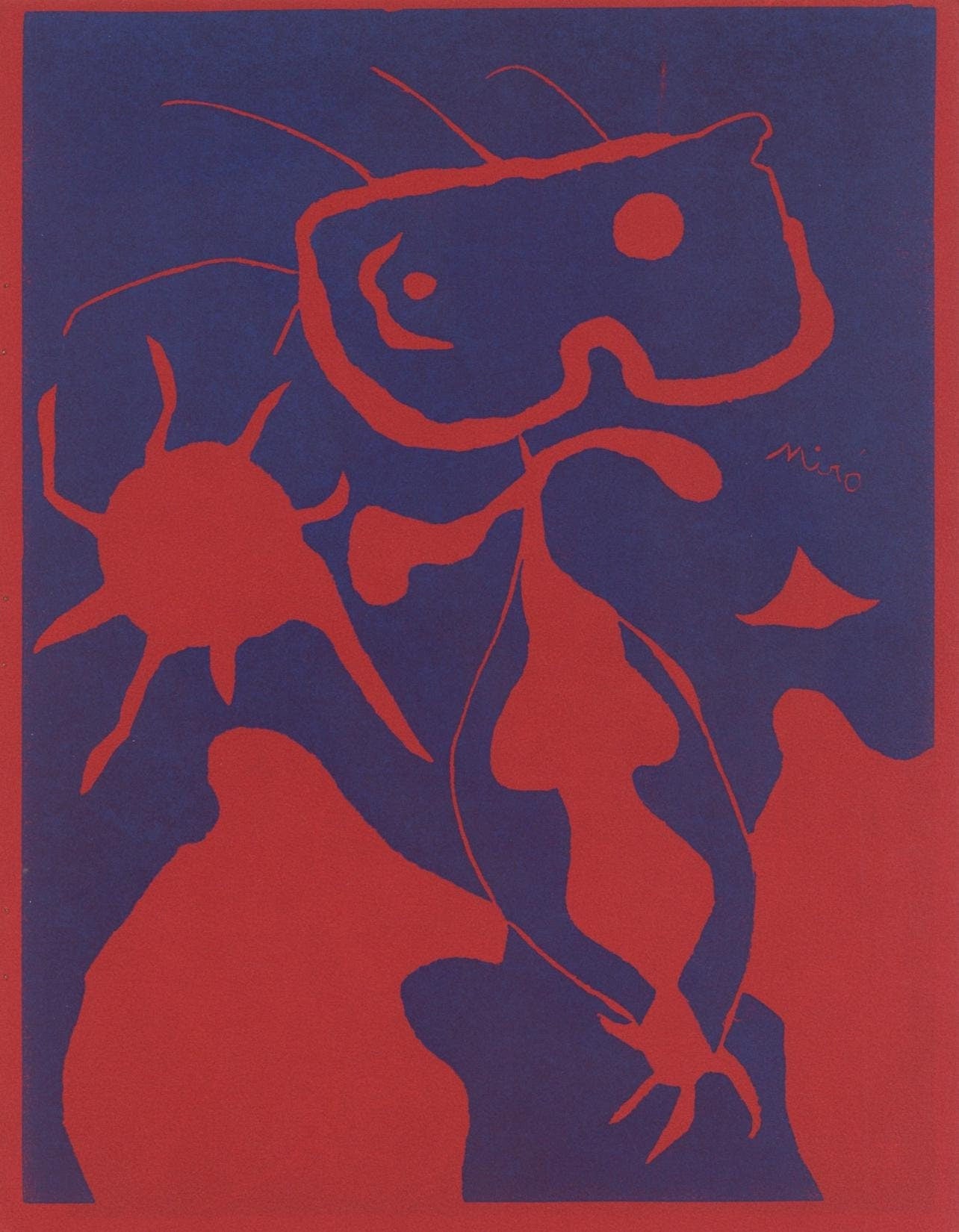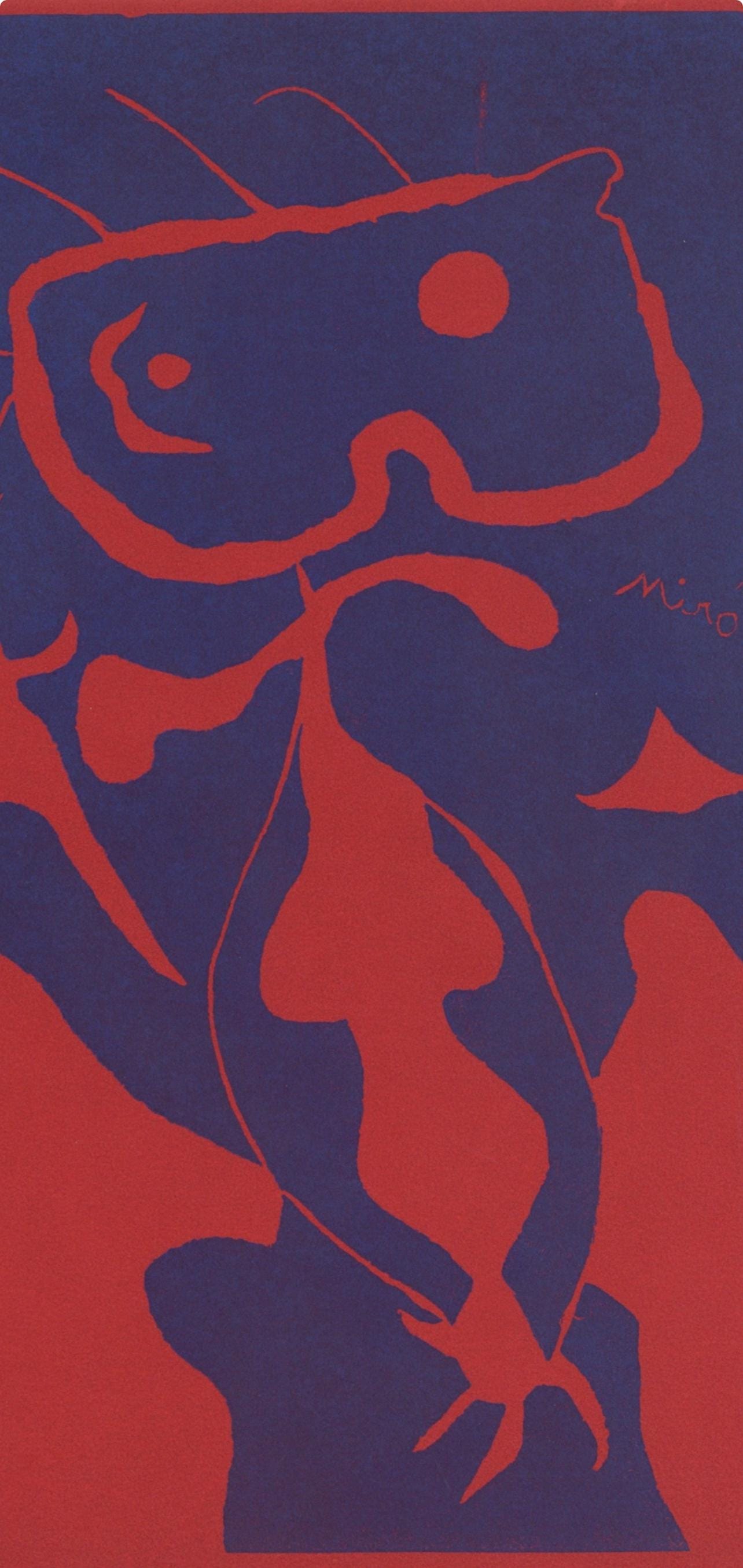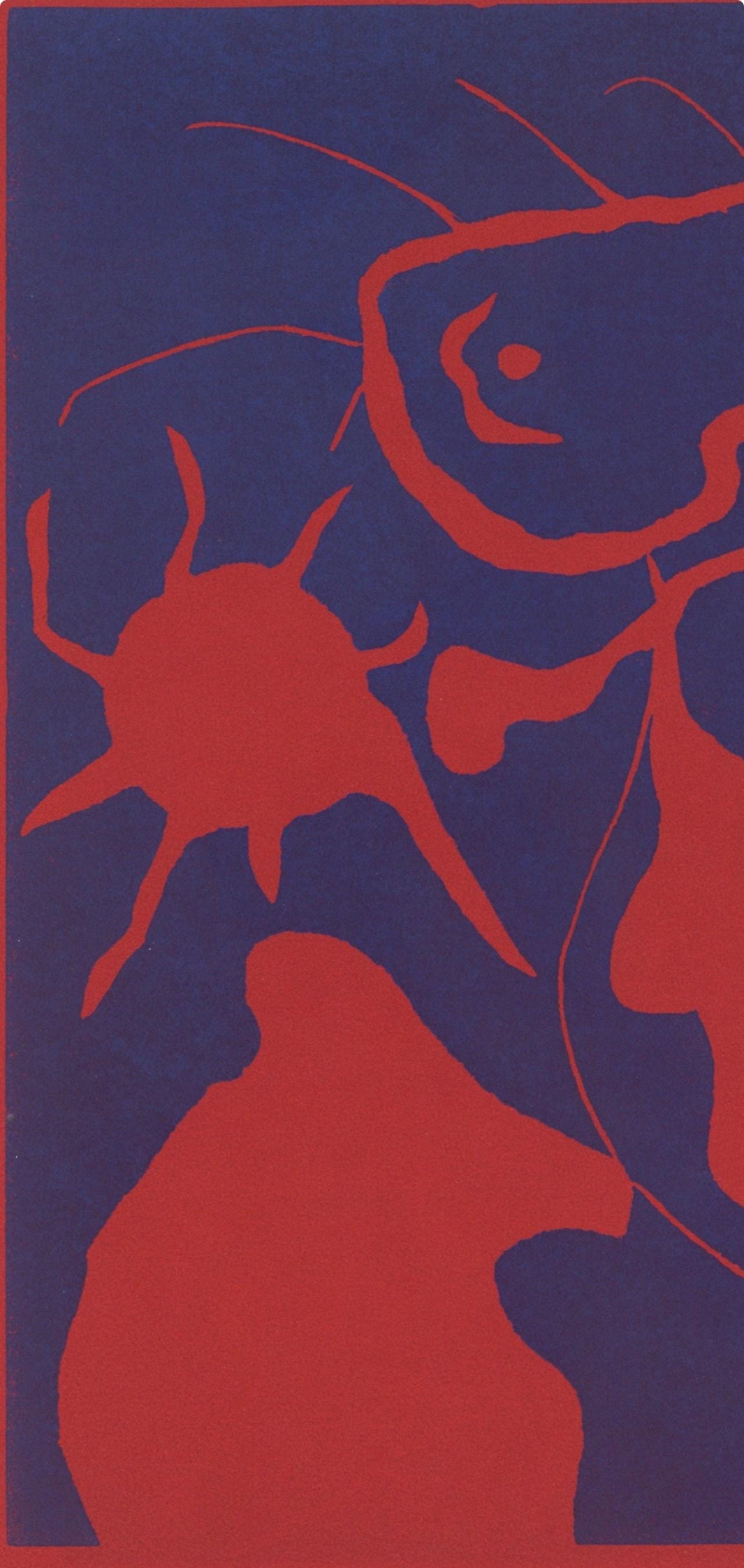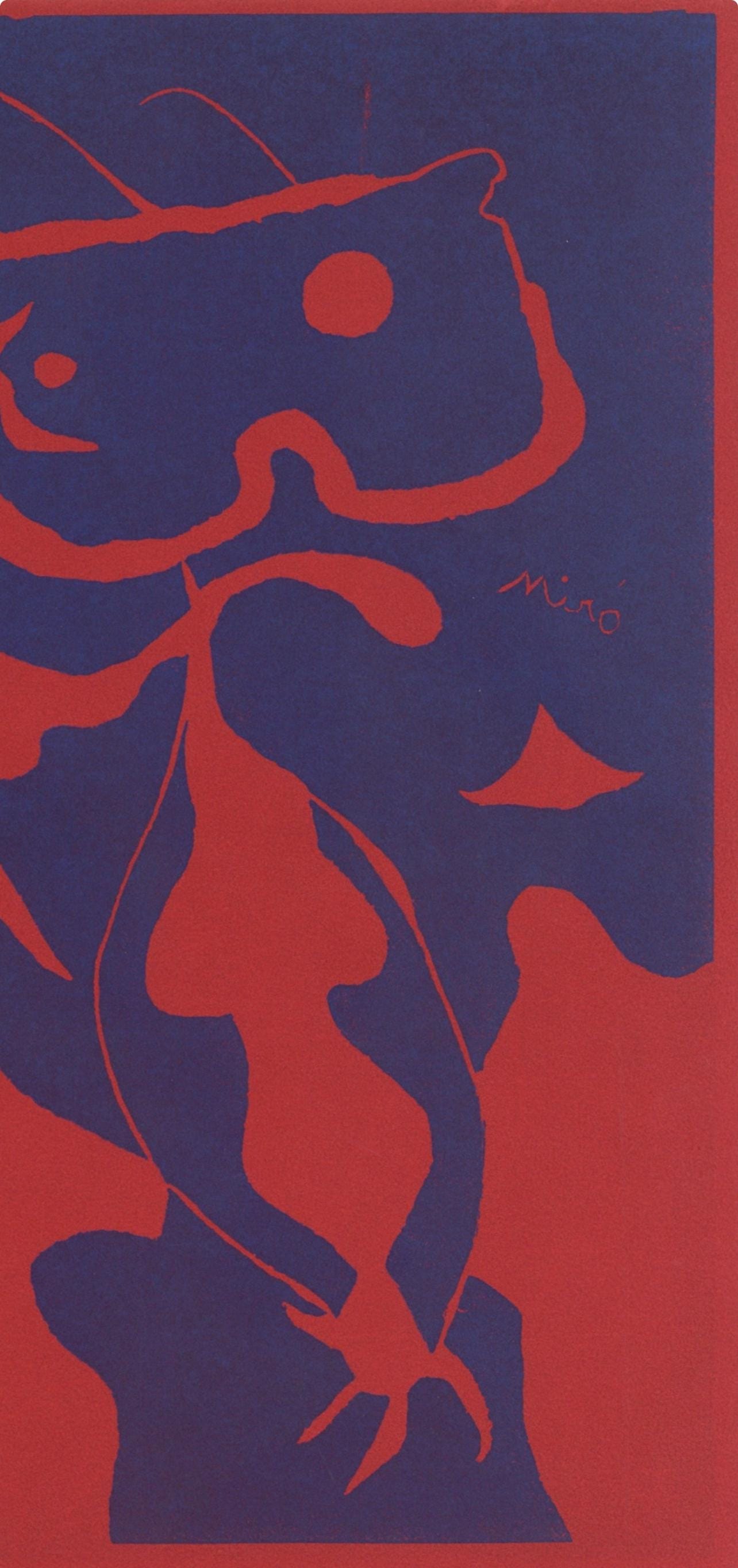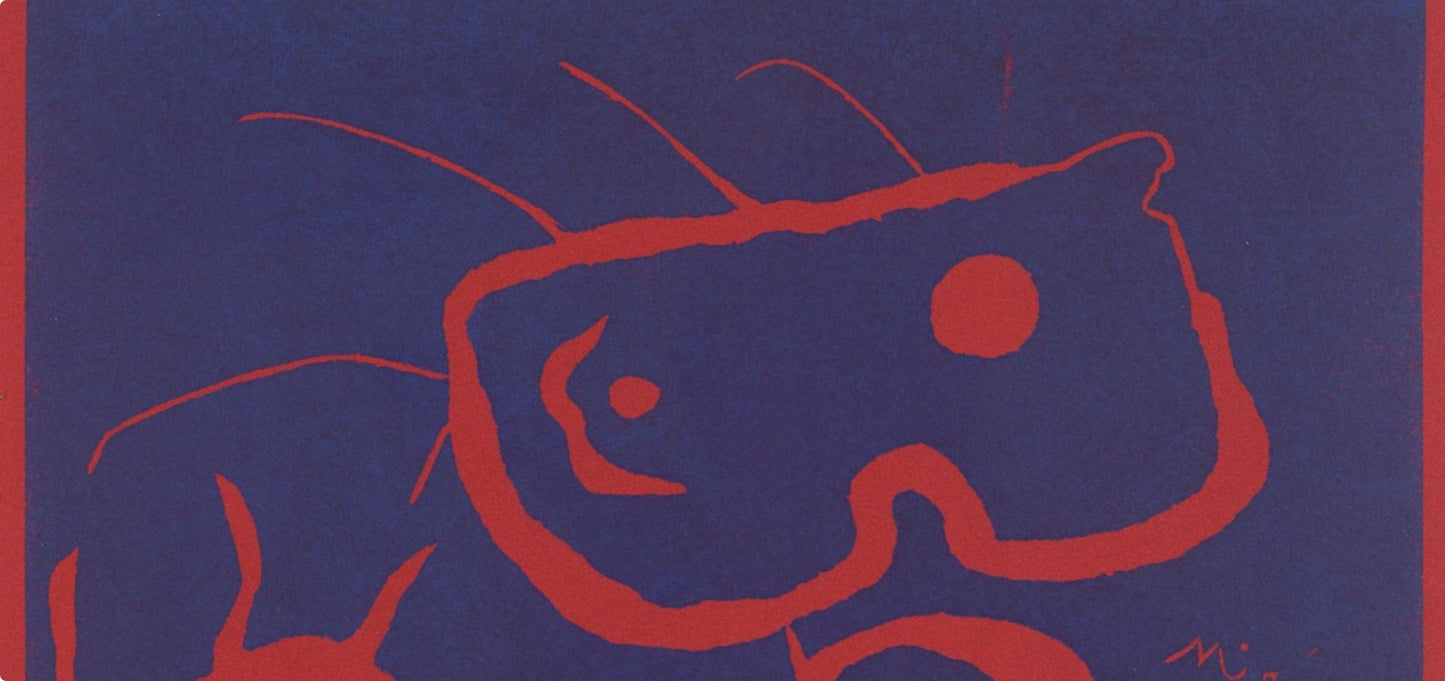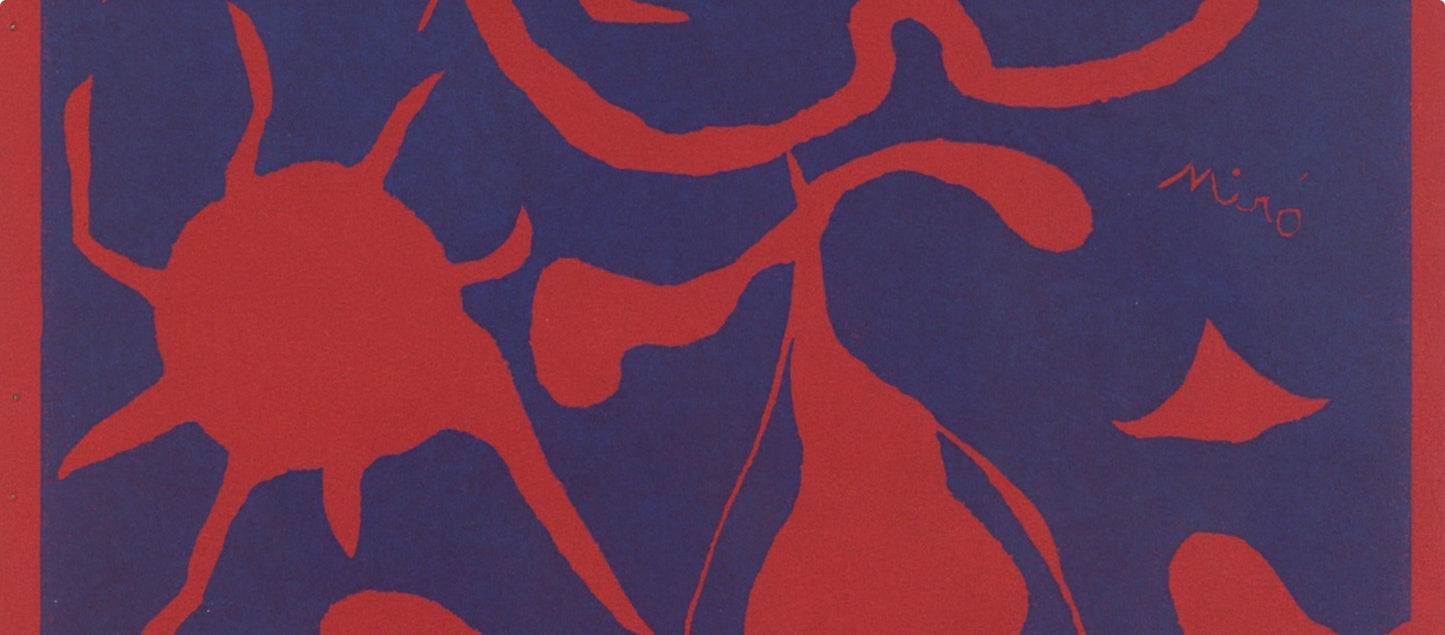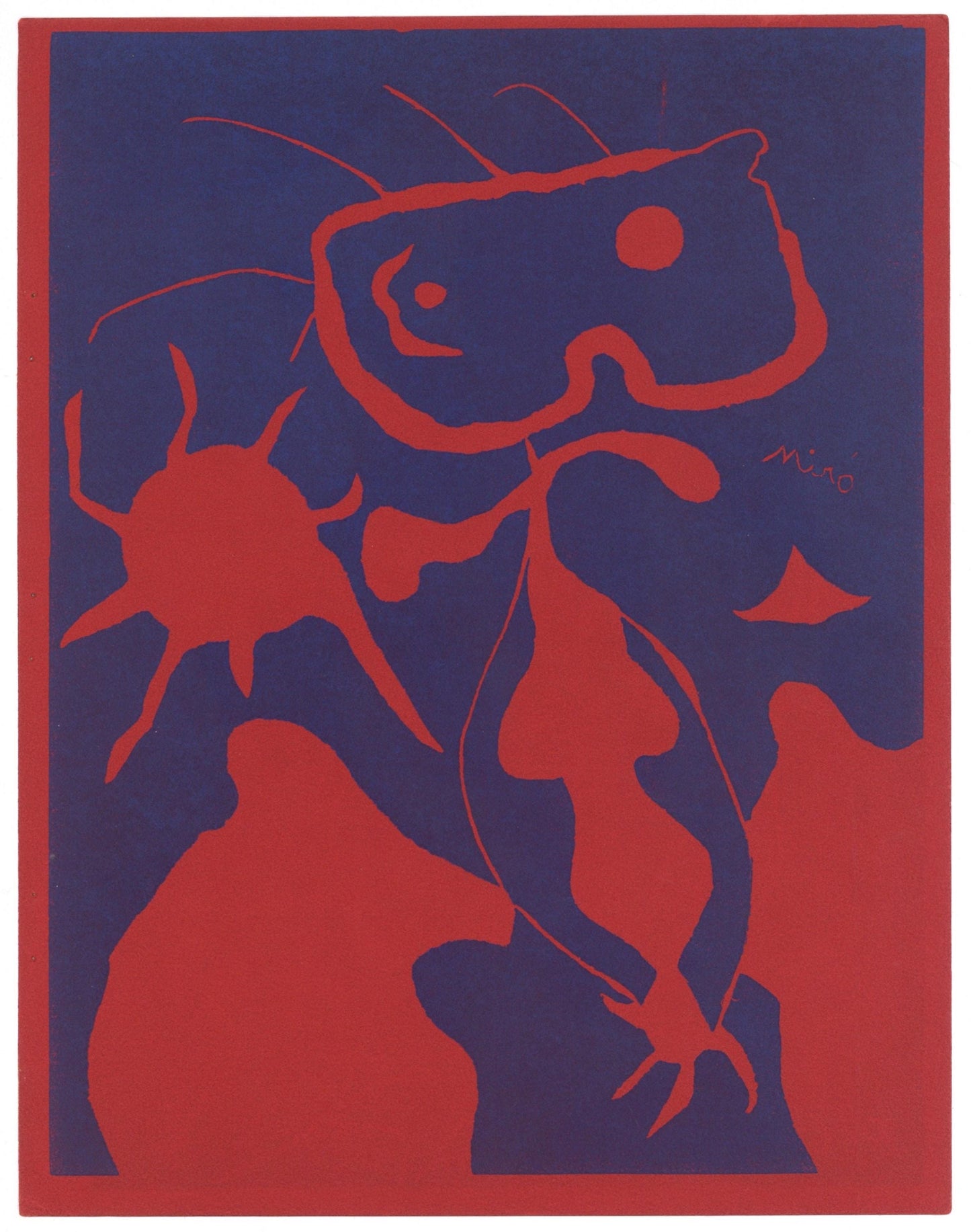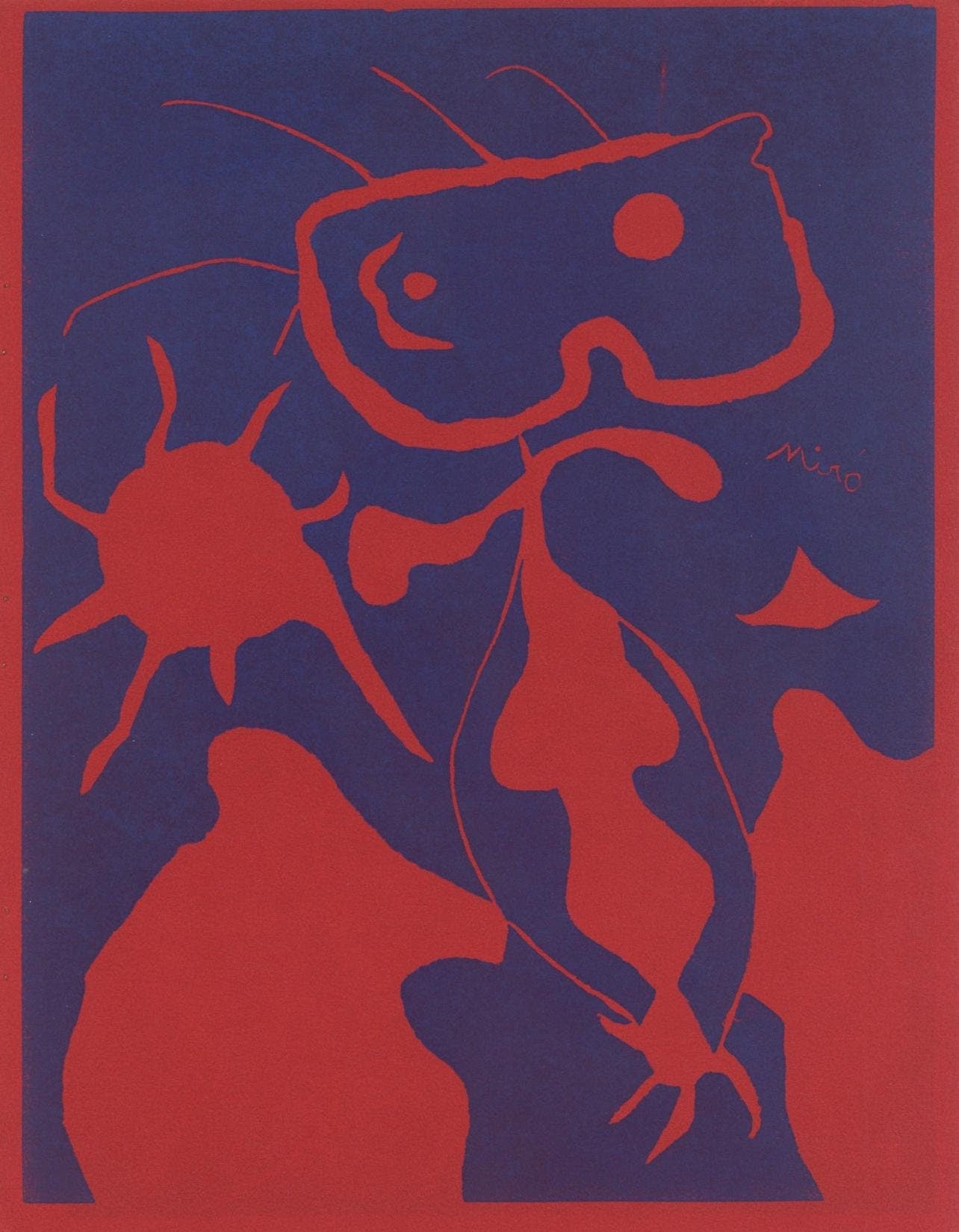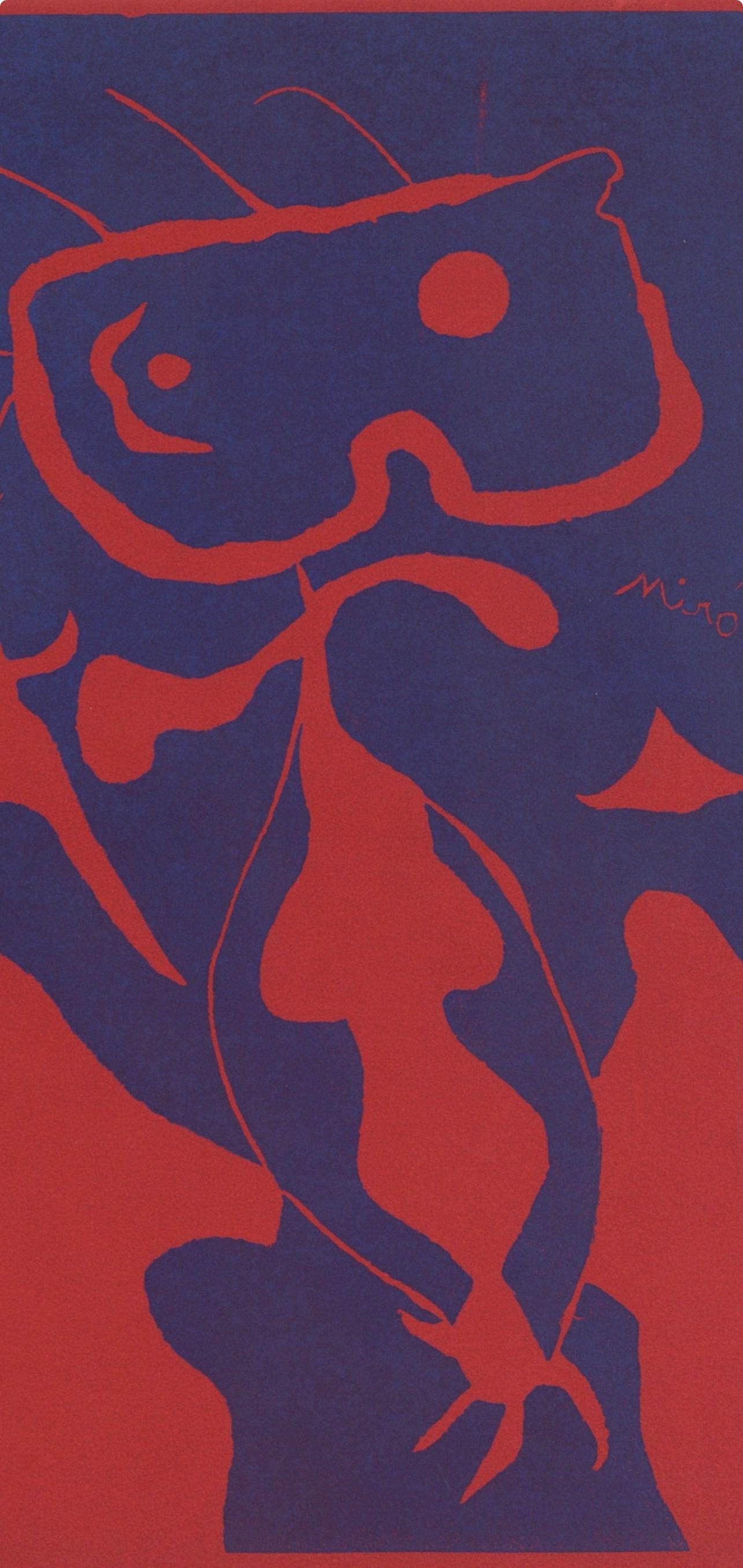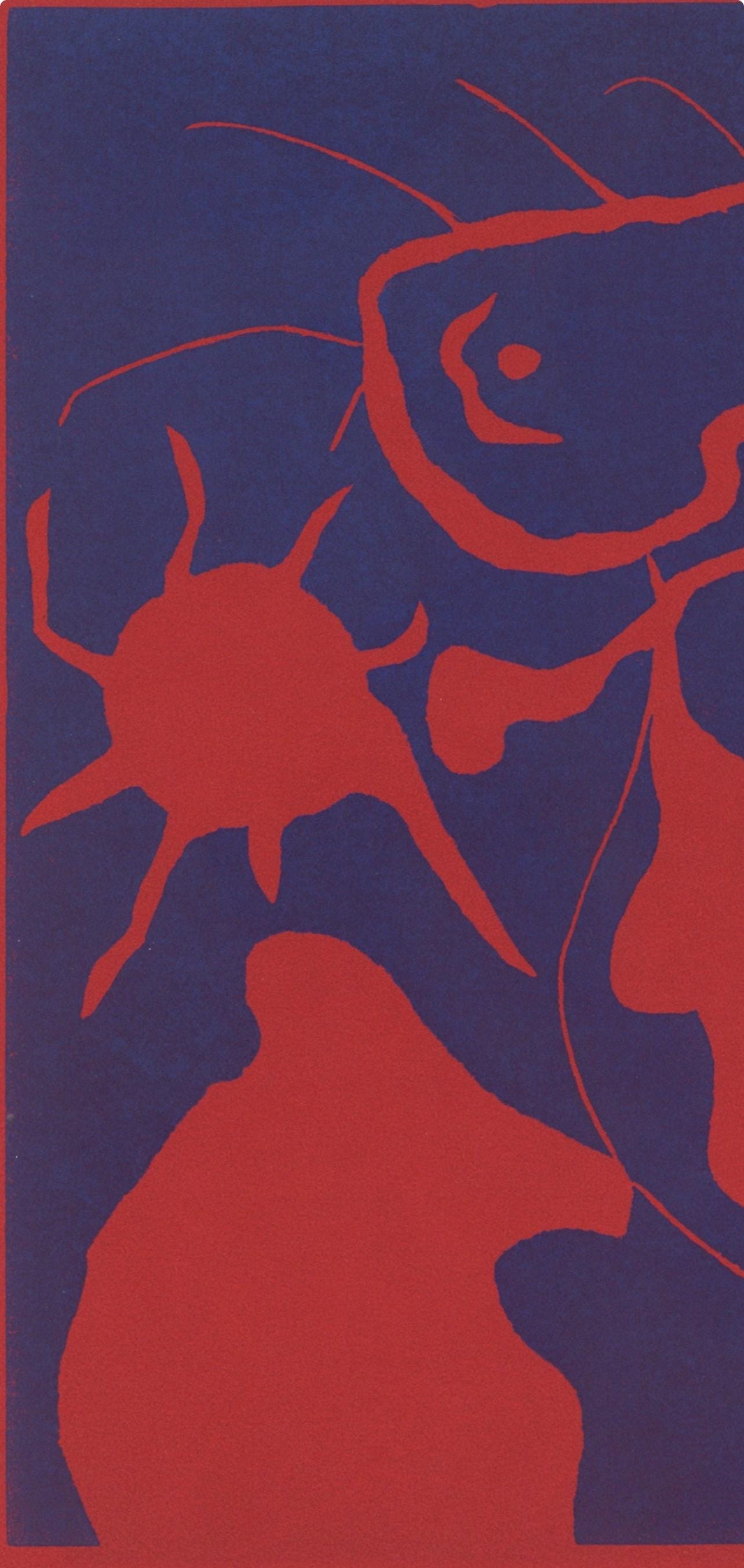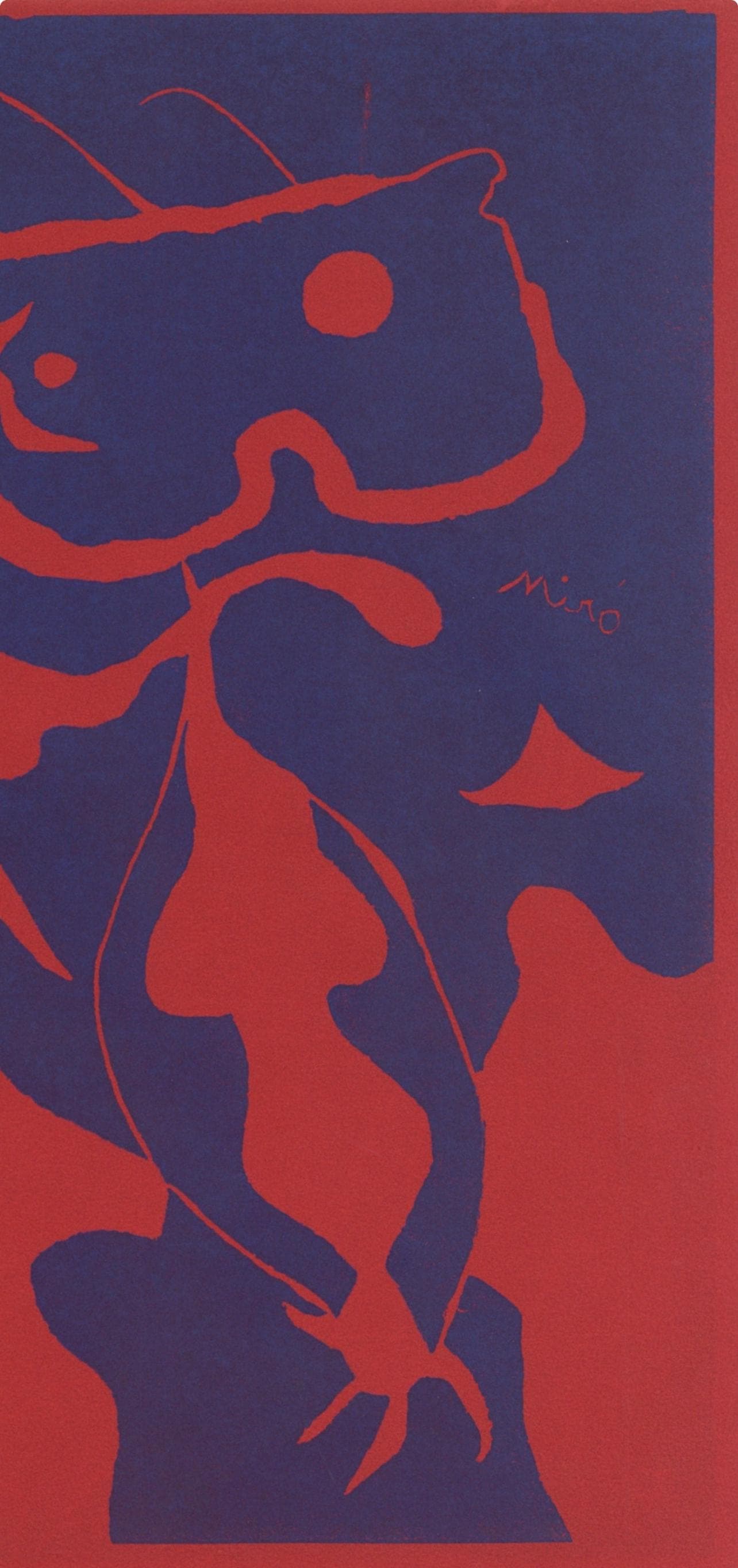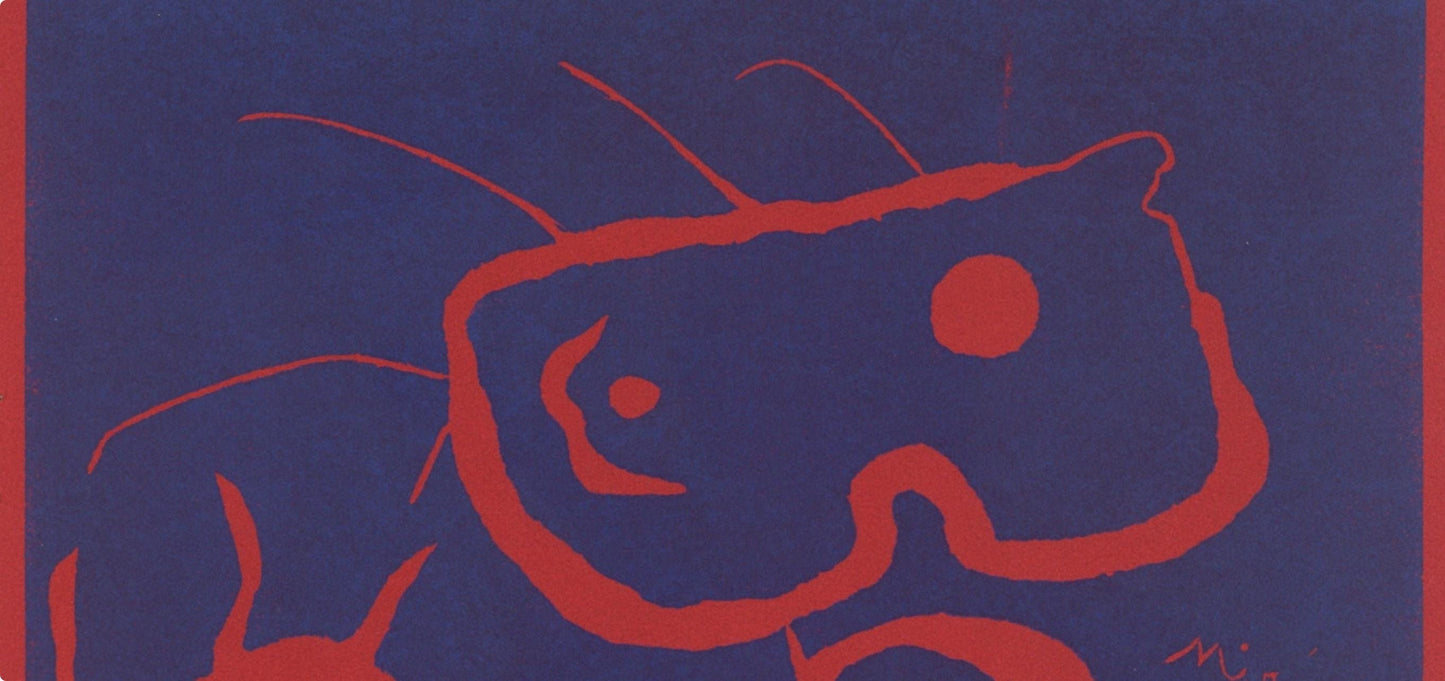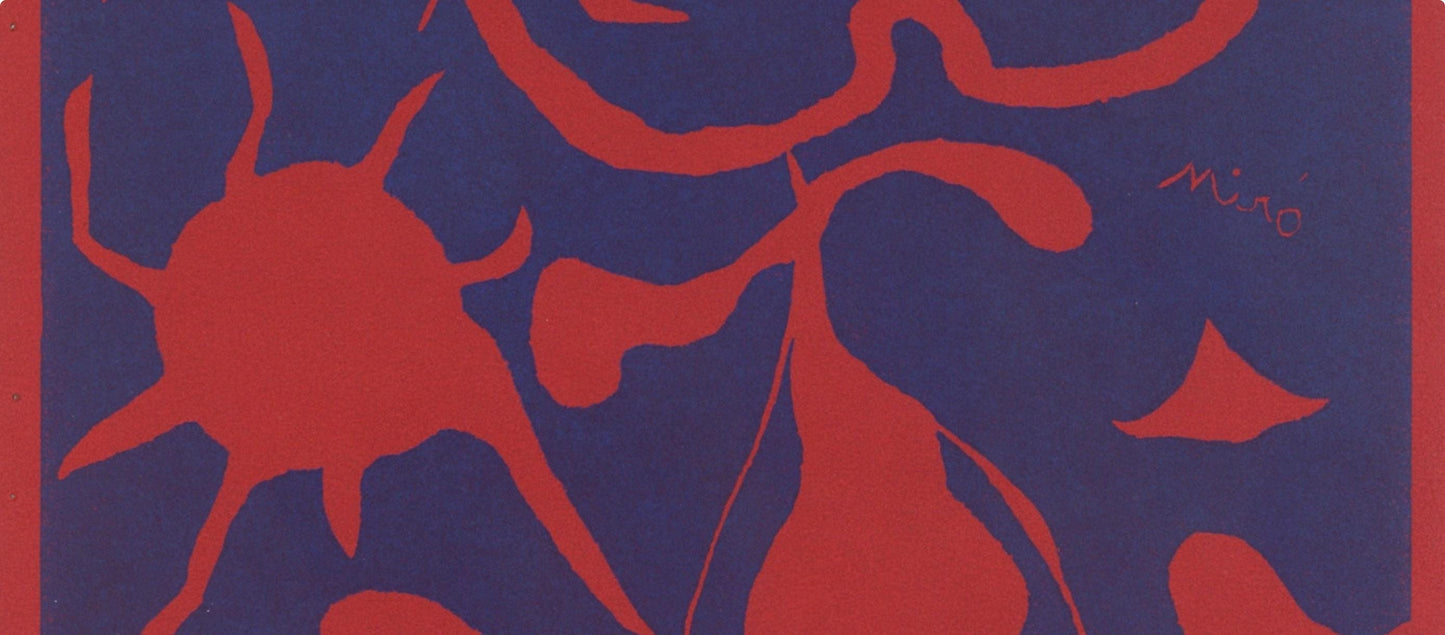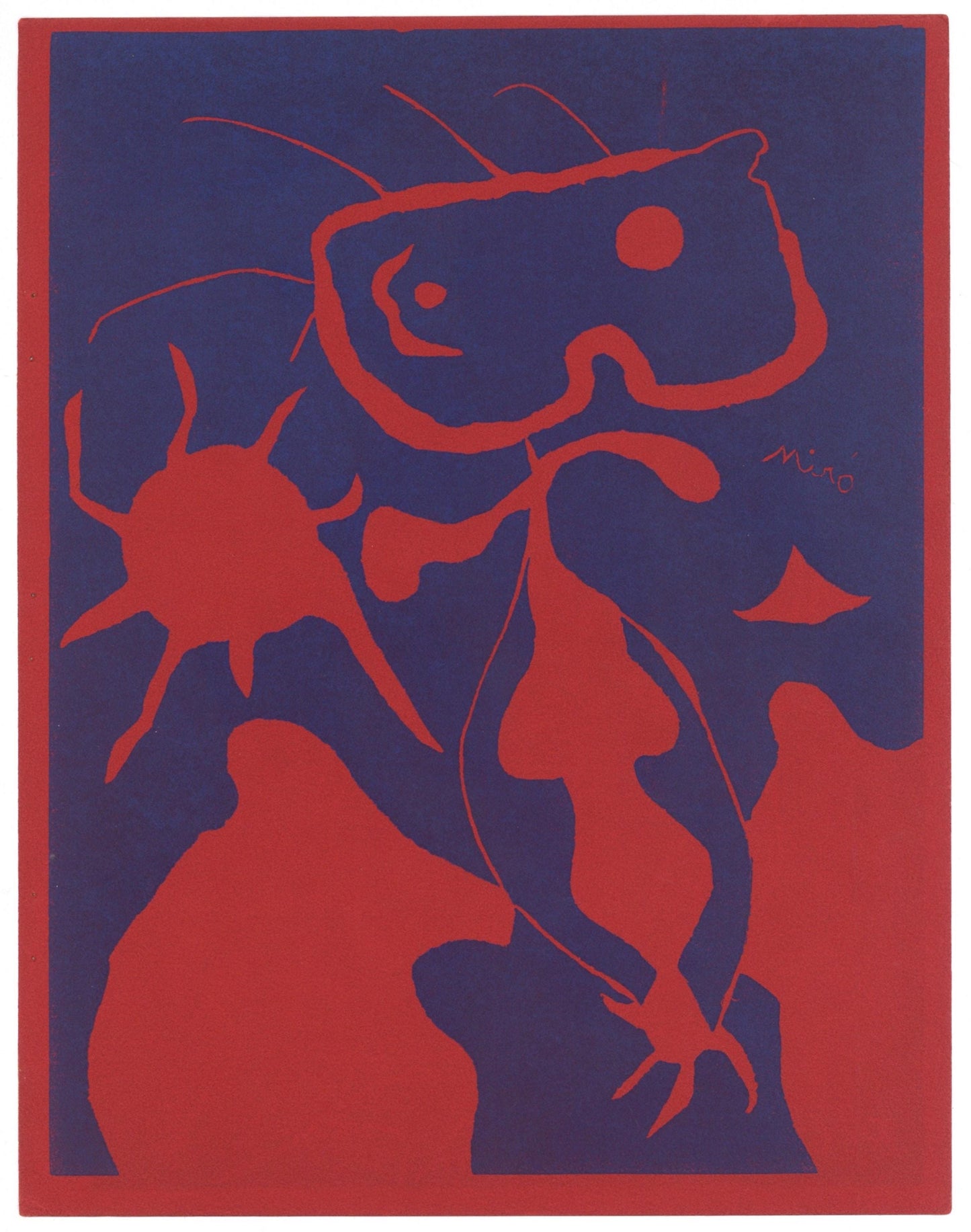1
/
of
14
Auction Ended: August 12, 2025
Post-Auction Sale Ends in:
Joan Mir, Composition (Cramer 6; Dupin 40; Mourlot 1967), Xxe Sicle, Linocut
Joan Mir, Composition (Cramer 6; Dupin 40; Mourlot 1967), Xxe Sicle, Linocut
Regular price
$1,937.10 USD
Regular price
$0.00 USD
Sale price
$1,937.10 USD
Unit price
/
per
Couldn't load pickup availability
Condition: Pre-Owned
Linocut on vlin paper. Paper Size: 12.5 x 9.75 inches. Excellent condition. Inscription: Unsigned and unnumbered, as issued. Notes: From the volume, XXe Sicle, n4, 1938. Published and printed under the direction of Gualtieri di San Lazzaro, diteur, Paris, by Socit Internationale d'Art XXe sicle, Paris. Excerpted from the academic article, Promoting Original Prints, The Role of Gualtieri di San Lazzaro and XXe Sicle by Valerie Holman, published in PRINT QUARTERLY, XXXII......
Linocut on vlin paper. Paper Size: 12.5 x 9.75 inches. Excellent condition. Inscription: Unsigned and unnumbered, as issued. Notes: From the volume, XXe Sicle, n4, 1938. Published and printed under the direction of Gualtieri di San Lazzaro, diteur, Paris, by Socit Internationale d'Art XXe sicle, Paris. Excerpted from the academic article, Promoting Original Prints, The Role of Gualtieri di San Lazzaro and XXe Sicle by Valerie Holman, published in PRINT QUARTERLY, XXXII......
Condition: Pre-Owned
Linocut on vlin paper. Paper Size: 12.5 x 9.75 inches. Excellent condition. Inscription: Unsigned and unnumbered, as issued. Notes: From the volume, XXe Sicle, n4, 1938. Published and printed under the direction of Gualtieri di San Lazzaro, diteur, Paris, by Socit Internationale d'Art XXe sicle, Paris. Excerpted from the academic article, Promoting Original Prints, The Role of Gualtieri di San Lazzaro and XXe Sicle by Valerie Holman, published in PRINT QUARTERLY, XXXIII, 2016, 2, Until recently very little has been written on the Italian author and art publisher Gualtieri di San Lazzaro (1904-75), yet for 50 years he chronicled the life and work of contemporary artists, produced monographs of exceptional quality, and disseminated original prints by modern painters and sculptors through his best-known periodical, XXe Sicle. Although still a relatively unfamiliar figure in the United Kingdom, San Lazzaro is one of the half-dozen great art publishers of the mid-twentieth century who, together with his exemplar, Ambroise Vollard (1866-1939), and those of his own generation, Christian Zervos (1889-1970), Triade (1889-1983) and Albert Skira (1904-73), chose to base himself in Paris, seeing it throughout his life as the centre of the art world.XXe Sicle, an illustrated periodical, was launched in 1938 and printed in editions of approximately 2,000, each issue containing both photographs and four-colour separation reproductions across a wide spectrum of visual imagery ranging from masterpieces of Western painting to popular prints from the Far East. Its large format, lively design, and close integration of text and image, were immediately striking, but its most innovative feature, introduced at the suggestion of Hans Arp (1886-1966), was the inclusion of original prints by contemporary artists in every issue. With obvious appeal for collectors, XXe Sicle was also designed to introduce a wider, international public to contemporary painting and sculpture through good quality colour reproductions and the immediacy of original prints. Comparable in price to Cahiers d'Art, early issues of XXe Sicle sold out rapidly. While San Lazzaro's own aesthetic preferences tended towards lyric abstraction, he made clear that XXe Sicle was non-partisan [publication ceased during World War II].in 1951, San Lazzaro relaunched XXe Sicle with thematic issues that were materials based, or centred on a topic of current interest in the visual arts, particularly in Europe: concepts of space, matter, monochrome, mark-making and the sign.' A defining feature of the new series was Italy's artistic dialogue with France for, while San Laz-zaro had originally concentrated on Paris-based painters and sculptors, his aim was to create an international network, to make known the work of French artists in Italy and Italian artists in France, and subsequently extend this bilateral axis to the English-speak-ing world. The artists represented in No. I by an original print were all best known as sculptors: Arp, Laurens, Henry Moore (1898-186) and Marino Marini, San Lazzaro not only sought to show readers the full range of an artist's work, but to encourage the production of prints, a stimulus much appreciated, for example, by Magnelli. Suffering from failing health, in 1968 San Lazzaro lost overall control of XXe Sicle to Lon Amiel, a printer-publisher who had provided financial backing and helped with distribution in America." Thematic issues now ceased and were replaced by a 'panorama' of the year, but San Lazzaro was still active as a publisher of books and albums of prints.Shortly after his death, San Lazzaro himself was the subject of two exhibitions: 'Omaggio a XXe Sicle' in Milan in December 1974 centred on graphic work by those artists closest to him late in life, while 'San Laz-zaro et ses Amis' at the Muse d'Art Moderne de la Ville de Paris in 1975 featured work by all those whose work he had promoted for more than 50 years: Arp, Calder (1898-1976), Capogrossi, Chagall, Sonia Delau-nay, Dubuffet, Estve, Lucio Fontana (1899-1968), Gili-oli (1911-77), Magnelli, Marini, Mir, Moore and Poliakoff. This exhibition was seen by one of his closest colleagues as an indirect portrait of San Lazzaro, a complex man whose modesty and reserve masked his unremitting drive to extend international appreciation of contemporary art, and to bring the reading public closer to its making through the medium of print.
JOAN MIRO (1893-1983) Joan Miro was a Surrealist Spanish painter who created artwork of imaginative fantasy. Miro was very much against the established painting methods of the time, and is often credited with being the founder of automatic drawing. Automatic drawing is the process of allowing the hand to move randomly on the canvas, leaving the artwork to chance. His dreamlike works contain impressions of playfully distorted animal forms, twisted organic shapes, and odd geometric constructions. A contemporary of Picasso, Miro towers as one of the great masters of modern art, and is amongst the most famous artists of the 20th century.
Product Disclaimer: Please review the full description and photos. Lithographs may be plate-signed, hand-signed, or slab-signed and can include a COA (see images); edition numbers shown may vary from the one shipped. Pricing reflects signature type—hand-signed pieces carry a premium and are clearly labeled. 'After' or 'nach' indicates an authorised lithographic reproduction in the style of the named artist, not a unique original. For inquiries, please reach out to support@seuyco.com. By registering for or placing a bid in any SEUYCO auction, you confirm that you have read, understood, and agree to our Shipping, Payment, and Auction Policies.
Linocut on vlin paper. Paper Size: 12.5 x 9.75 inches. Excellent condition. Inscription: Unsigned and unnumbered, as issued. Notes: From the volume, XXe Sicle, n4, 1938. Published and printed under the direction of Gualtieri di San Lazzaro, diteur, Paris, by Socit Internationale d'Art XXe sicle, Paris. Excerpted from the academic article, Promoting Original Prints, The Role of Gualtieri di San Lazzaro and XXe Sicle by Valerie Holman, published in PRINT QUARTERLY, XXXIII, 2016, 2, Until recently very little has been written on the Italian author and art publisher Gualtieri di San Lazzaro (1904-75), yet for 50 years he chronicled the life and work of contemporary artists, produced monographs of exceptional quality, and disseminated original prints by modern painters and sculptors through his best-known periodical, XXe Sicle. Although still a relatively unfamiliar figure in the United Kingdom, San Lazzaro is one of the half-dozen great art publishers of the mid-twentieth century who, together with his exemplar, Ambroise Vollard (1866-1939), and those of his own generation, Christian Zervos (1889-1970), Triade (1889-1983) and Albert Skira (1904-73), chose to base himself in Paris, seeing it throughout his life as the centre of the art world.XXe Sicle, an illustrated periodical, was launched in 1938 and printed in editions of approximately 2,000, each issue containing both photographs and four-colour separation reproductions across a wide spectrum of visual imagery ranging from masterpieces of Western painting to popular prints from the Far East. Its large format, lively design, and close integration of text and image, were immediately striking, but its most innovative feature, introduced at the suggestion of Hans Arp (1886-1966), was the inclusion of original prints by contemporary artists in every issue. With obvious appeal for collectors, XXe Sicle was also designed to introduce a wider, international public to contemporary painting and sculpture through good quality colour reproductions and the immediacy of original prints. Comparable in price to Cahiers d'Art, early issues of XXe Sicle sold out rapidly. While San Lazzaro's own aesthetic preferences tended towards lyric abstraction, he made clear that XXe Sicle was non-partisan [publication ceased during World War II].in 1951, San Lazzaro relaunched XXe Sicle with thematic issues that were materials based, or centred on a topic of current interest in the visual arts, particularly in Europe: concepts of space, matter, monochrome, mark-making and the sign.' A defining feature of the new series was Italy's artistic dialogue with France for, while San Laz-zaro had originally concentrated on Paris-based painters and sculptors, his aim was to create an international network, to make known the work of French artists in Italy and Italian artists in France, and subsequently extend this bilateral axis to the English-speak-ing world. The artists represented in No. I by an original print were all best known as sculptors: Arp, Laurens, Henry Moore (1898-186) and Marino Marini, San Lazzaro not only sought to show readers the full range of an artist's work, but to encourage the production of prints, a stimulus much appreciated, for example, by Magnelli. Suffering from failing health, in 1968 San Lazzaro lost overall control of XXe Sicle to Lon Amiel, a printer-publisher who had provided financial backing and helped with distribution in America." Thematic issues now ceased and were replaced by a 'panorama' of the year, but San Lazzaro was still active as a publisher of books and albums of prints.Shortly after his death, San Lazzaro himself was the subject of two exhibitions: 'Omaggio a XXe Sicle' in Milan in December 1974 centred on graphic work by those artists closest to him late in life, while 'San Laz-zaro et ses Amis' at the Muse d'Art Moderne de la Ville de Paris in 1975 featured work by all those whose work he had promoted for more than 50 years: Arp, Calder (1898-1976), Capogrossi, Chagall, Sonia Delau-nay, Dubuffet, Estve, Lucio Fontana (1899-1968), Gili-oli (1911-77), Magnelli, Marini, Mir, Moore and Poliakoff. This exhibition was seen by one of his closest colleagues as an indirect portrait of San Lazzaro, a complex man whose modesty and reserve masked his unremitting drive to extend international appreciation of contemporary art, and to bring the reading public closer to its making through the medium of print.
JOAN MIRO (1893-1983) Joan Miro was a Surrealist Spanish painter who created artwork of imaginative fantasy. Miro was very much against the established painting methods of the time, and is often credited with being the founder of automatic drawing. Automatic drawing is the process of allowing the hand to move randomly on the canvas, leaving the artwork to chance. His dreamlike works contain impressions of playfully distorted animal forms, twisted organic shapes, and odd geometric constructions. A contemporary of Picasso, Miro towers as one of the great masters of modern art, and is amongst the most famous artists of the 20th century.
Product Disclaimer: Please review the full description and photos. Lithographs may be plate-signed, hand-signed, or slab-signed and can include a COA (see images); edition numbers shown may vary from the one shipped. Pricing reflects signature type—hand-signed pieces carry a premium and are clearly labeled. 'After' or 'nach' indicates an authorised lithographic reproduction in the style of the named artist, not a unique original. For inquiries, please reach out to support@seuyco.com. By registering for or placing a bid in any SEUYCO auction, you confirm that you have read, understood, and agree to our Shipping, Payment, and Auction Policies.
+ Read More
